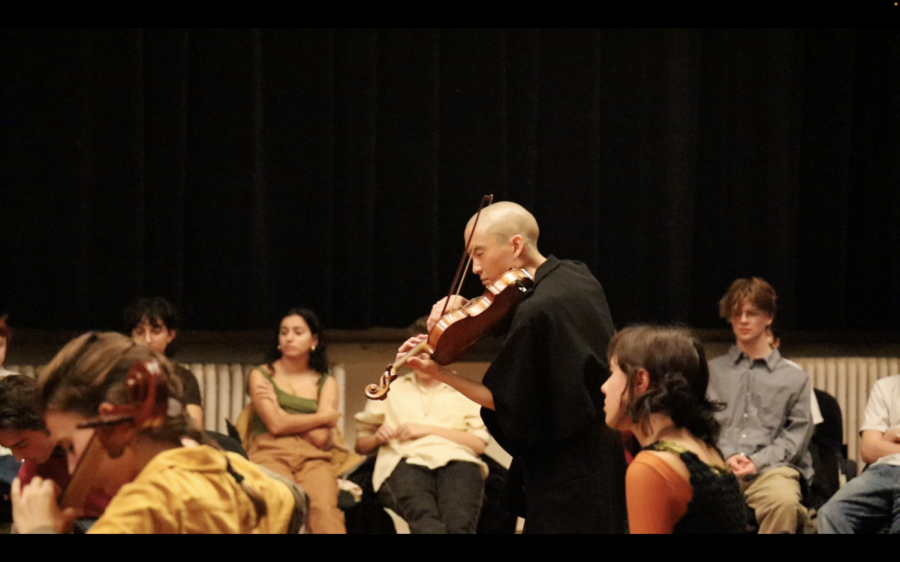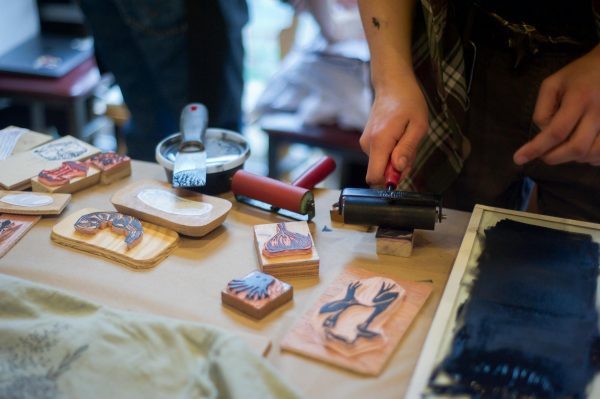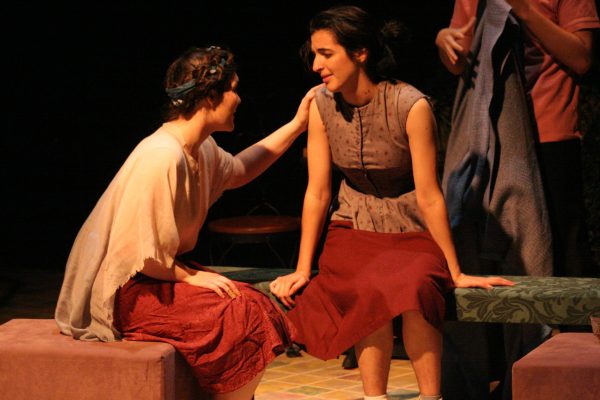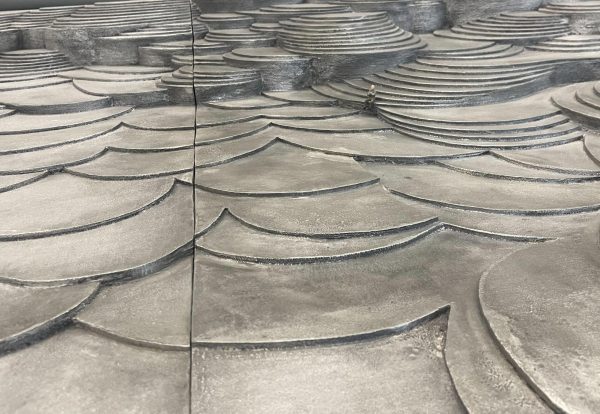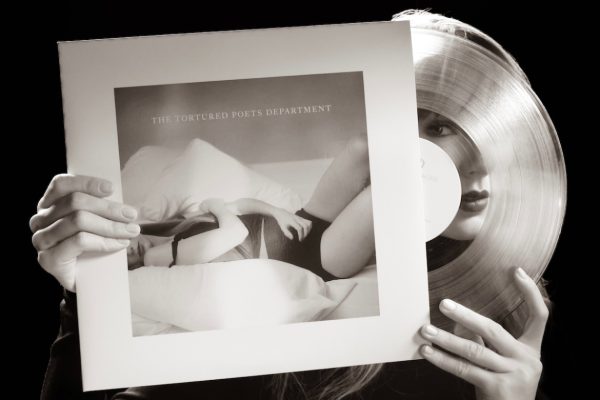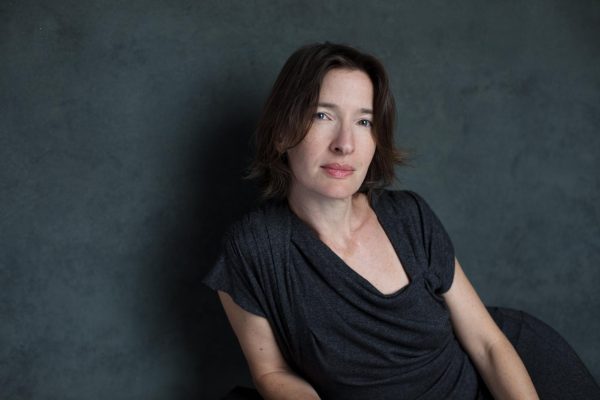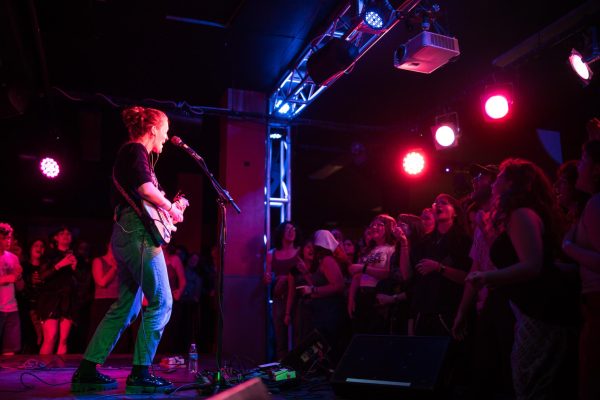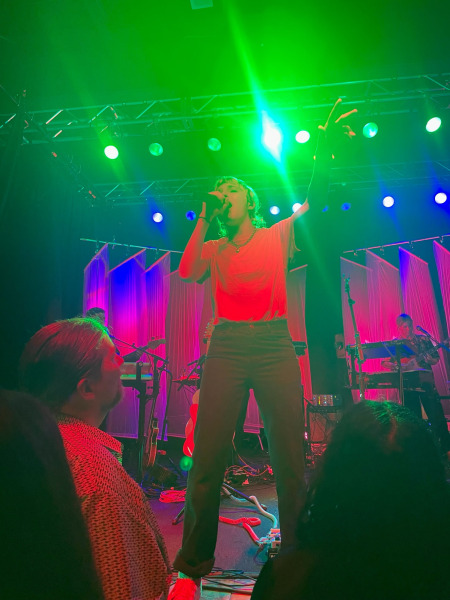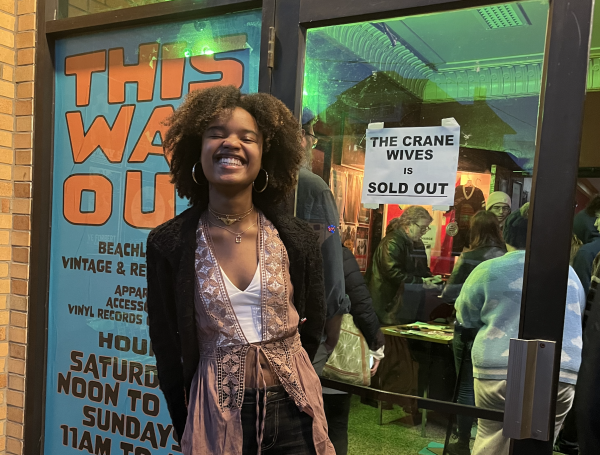Modern Music Guild Hosts Experimental Music Workshop
Oberlin showed off its vibrant electronic music scene last Friday when New York-based interdisciplinary artist, composer-performer, and improviser eddy kwon performed on campus. kwon’s concert included two parts: a solo piece that explored music as ritual, incorporating elements of movement, spoken word, and violin improv, and an ensemble piece performed by a group of student musicians from a range of musical backgrounds.
This event was organized by the Modern Music Guild, a student organization intent on bringing more boundary-pushing creatives like kwon to campus. The group is self-described as “focused on presenting concerts and workshops by experimental musicians,” and it brings together student musicians who want to explore the innovative fringes of music-making — of which Oberlin has many.
“Basically, it’s a group of people who are interested in experimental music and bringing musicians to Oberlin who wouldn’t normally be booked by other booking groups like the ’Sco,” Penina Biddle-Gottesman, third-year TIMARA major and MMG member, said. “We’re really looking for experimental musicians who focus on improv and extended techniques.”
Fourth-year Jazz Composition major Ezra Rudel played the trumpet alongside kwon during last week’s concert, and although they weren’t previously familiar with her work, they were quickly captivated by her unique ability to integrate seemingly dissimilar types of music.
“eddy is experimental and free and improvised, but also very informed by folk traditions, which is my thing,” Rudel said. “She was amazing to work with.”
Rudel hasn’t been particularly involved with experimental music ensembles in the past, but after this experience, they hope to be in the future. For them, part of what makes participating in these ensembles exciting is that they get to play alongside musicians with all kinds of specialties and backgrounds.
“In this scene in particular, there’s a lot of variety,” they said. “In this ensemble, there were TIMARA majors, me and one other jazz major, a couple of classical music majors, and then there were people from the College folk, bluegrass, and old-time scene.”
So what is “experimental music” exactly? In short, it’s a genre concerned with exploring musical possibilities and approaching music-making in unconventional ways.
“I think experimental music is about pushing boundaries, and it’s not necessarily purely intuition-based,” Biddle-Gottesman said. “Some improv is really spur of the moment, but then there’s also a lot of people who are working with computer programming and creating multimedia work, and that can take years of planning and work. I think [experimental music] can come in many different forms, but it’s all motivated by the idea of wanting to create something that opens up your own perception of music and then opens up the perceptions of the people who hear it, too. At its core, it’s about opening up the limitations of music-making.”
Experimental music has been an integral part of Oberlin’s music scene for decades, in part thanks to the Technology in Music and Related Arts department. TIMARA is unique in its combination of traditional music skills and innovative, electroacoustic techniques, attracting students like Biddle-Gottesman, who has been interested in experimental music since eighth grade, to Oberlin.
“I studied cello really seriously growing up,” Biddle-Gottesman said. “I went to a classical music school, and there was an after-school program at the school called the John Adams Young Composer’s Program. It was led by Matthew Camille, who became one of my most important mentors throughout high school. He was really interested in bringing experimental music to kids, and it started opening my mind up because until then, I had only been exposed to classical and pop music and the folk music I was raised on. That was my palette at the time, so studying these experimental classical pieces really inspired me.”
Biddle-Gottesman’s discovery of experimental music didn’t diminish her appreciation for other genres. Instead, it broadened her understanding of what forms music can take, and over time, it has helped her to mend her once-strained relationship with music as an art form.
“For me, improvising and playing experimental music is like a way of healing,” she said. “I have a very warped relationship with my cello because I started playing it so young in a really strict context. I think that improvising with people like eddy is really a healing experience. I love classical music. I still practice it, I still like to sing, I study music history — it very much informs what I do. But I don’t think it should be taught in a way that holds it up as the ultimate ideal of what music can be. I think that any kind of limitation on what something ‘needs’ to sound like really stunts creativity. So experimental music is like the antidote to that.”
Biddle-Gottesman hopes kwon’s performance was just the start of making the experimental music scene more accessible on campus, especially as Oberlin emerges from the pandemic and the live music scene is revitalized.
“COVID really stunted the live music scene, but now I feel like it’s totally back,” she said. “I feel like there’s a renaissance beginning. I just hope that we can keep growing the experimental music scene and making it a less exclusive community, because everyone has something to contribute. I think people are afraid to because it’s improv, and that’s deeply terrifying. It’s maybe the scariest thing, but it’s also the least scary thing because you can’t mess up. So I think it’s a really good practice. Even if you’re never gonna do it professionally, I think it can help you navigate life without fear.”


